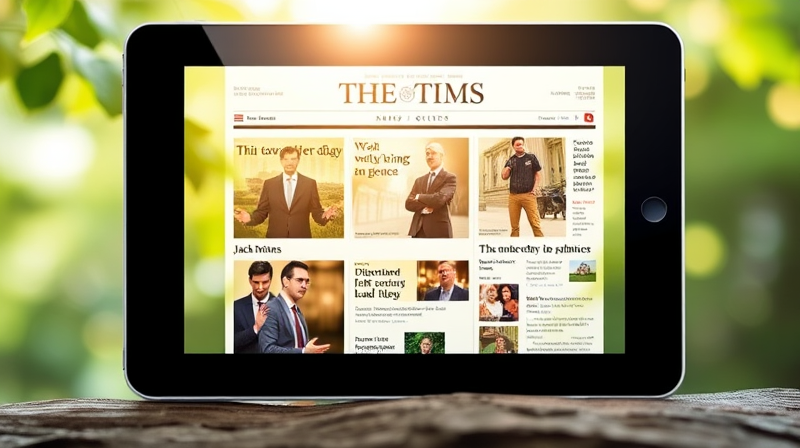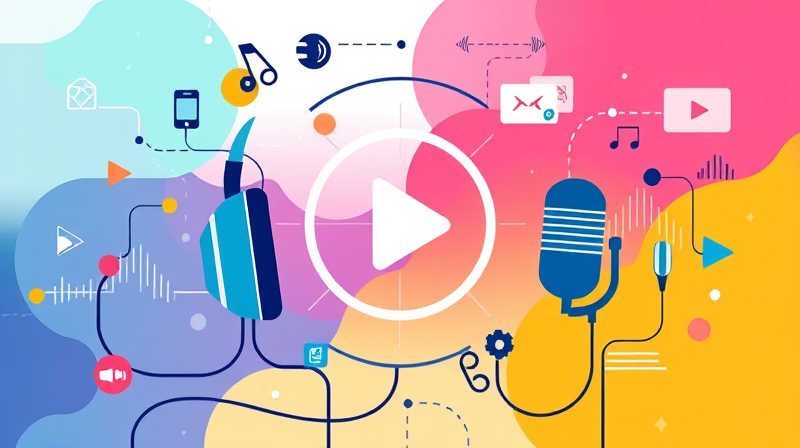In our fast-paced world, establishing sustainable news consumption habits is more important than ever. With so much information available at our fingertips, finding a balance between staying informed and preserving our mental and environmental wellbeing is a must. This article offers practical tips and strategies that empower you to curate a thoughtful media experience, one that respects both your energy and the planet.
Today, many of us find that the sheer volume of news can lead to feeling overwhelmed. It is essential to recognize that quality is more valuable than quantity when it comes to the news you choose to follow. By deliberately selecting sources known for their integrity, you can reduce the risk of misinformation while ensuring that you remain well-informed with dependable insights.
Actionable Tips for Sustainable Media Consumption
You can take concrete steps to transform your news consumption habits into something sustainable and fulfilling. Below are actionable strategies to help you navigate the modern media landscape without compromising your mental health or contributing unduly to digital overload.
- Embrace Digital Platforms Strategically: With a majority of news consumed via digital platforms, it makes sense to use apps and websites that align with your interests. Choose platforms that aggregate trusted sources, which can help you bypass the noise and focus on stories that matter.
- Prioritize Quality Over Quantity: Avoid getting lost in the endless stream of headlines by curating your news intake. Opt for outlets that feature solutions-oriented journalism, which not only informs you but also inspires you with possible answers to today’s challenges.
- Set Clear Boundaries: Designate specific time slots for checking the news. This can protect you from the negative effects of news fatigue while also reducing unnecessary digital engagement, which has its own environmental impact.
- Diversify Your Media Sources: Look beyond major digital platforms and include local and community-centered channels. Diverse viewpoints enrich your understanding and help you see the full picture of the events that shape your environment.
- Support Sustainable Media Practices: Choose to support publishers and content creators who value transparency and sustainable practices. This not only enhances accountability within the media sector but also reinforces a commitment to eco-conscious operations.
- Follow Trusted Voices: In the era of social media influencers, aligning yourself with trusted and credible voices can be a powerful way to navigate the news. These personalities often distill complex issues into easy-to-understand information that resonates with your values.
- Create a Balanced News Diet: Alternate between in-depth analysis of hard-hitting news and lighter, interest-based stories. This balance helps avoid burnout and keeps you engaged without feeling overwhelmed.
- Leverage Technology for Personalization: Make use of artificial intelligence and smart algorithms in your news apps. Personalization can streamline your content, ensuring that you receive updates that are most relevant to your life and interests.
- Engage with Community-Centric Stories: Local journalism and community-driven reporting offer unique insights that global news often overlooks. These stories provide a sense of connection and remind us that change often starts at home.
- Monitor and Adjust Your Consumption: Regular self-assessment of your news habits is crucial. Reflect on whether your current methods leave you better informed or contribute to stress, and be ready to make adjustments. This mindfulness can transform your overall media experience into a more intentional and rewarding practice.
Remember that the key to sustainable news consumption lies in intentionality. It is not just about reducing the number of news stories you consume, but rather about curating a balanced and enriching experience that supports both your mental and physical environment.
Integrating these changes may require some initial effort. However, the benefits of staying informed without succumbing to the pressures of a nonstop news cycle will soon become apparent. By choosing quality sources and managing your time effectively, you can cultivate a more mindful approach that leaves you feeling empowered and less anxious.
The digital world is continually evolving, and with it, the ways in which we consume news. Embracing methods that prioritize thoughtful interaction with media over brute consumption allows you to be both an informed citizen and a considerate member of the global community.
Whether you are a casual news reader or a dedicated media enthusiast, these practical tips can help transform your approach. As you adopt these changes, you may find that your experience of the world becomes richer and more nuanced. Enjoy the journey of discovering reliable sources, engaging with meaningful stories, and creating a sustainable news routine that serves your personal well-being and your community.
Ultimately, the power to change your news consumption habits lies in your hands. With a balanced and reflective strategy, you can make a significant impact—not only on your own life, but also in promoting a healthier, more sustainable media environment for all. The future of news is one where each reader has the agency to choose a path that respects both mental space and the environment. Take the first step today by implementing one of these strategies and experience the positive change it brings to your daily routine.
In conclusion, sustainable media consumption is about making choices that foster a deeper connection with the news while respecting personal boundaries and the health of our planet. Let these practical tips guide you on a journey towards a more selective, engaging, and responsible approach to staying informed.








